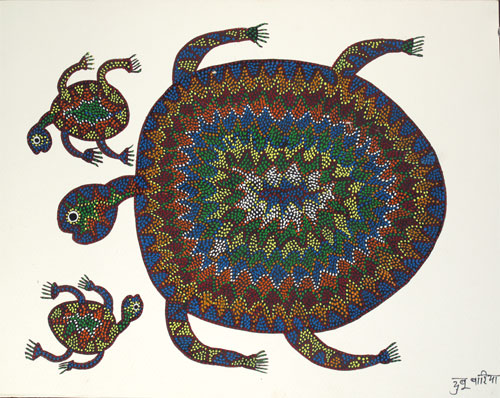The Bhasha Research and Publication Centre was founded in 1996 to study, document and conserve India’s non-scheduled languages. ‘Bhasha’ stands for the ‘voice’ of the tribals, and has over the years emerged as an institution with the active involvement of tribal society, making possible meaningful and sustainable interventions. The major activities of Bhasha include the documentation and conservation of languages, study and promotion of tribal arts, research, education, healthcare, and policy-level interventions in the interest of tribal development. Rather than address the issues faced by tribal communities separately, Bhasha views tribal development in a holistic manner, in which tribal culture provides a significant understanding to the problems of healthcare, education and development. Bhasha Chas established the Adivasi Academy at Tejgadh, Gujarat. Bhasha has done pioneering work in documenting the tribal music of six Indian states, and an ethnography of 70 Gujarati communities.
Under the leadership of Dr. Ganesh Devy, Bhasha recently completed, the People”s Linguistic Survey of India, documenting 780 languages.
ICF spoke to Prof Kanji Patel, writer and honorary director of the Adivasi Academy, about the Centre’s activities.
Would you give us an idea of the ways in which people from the tribal communities are directly involved in your projects?
Bhasha and Adivasi Academy’s network in Adivasi communities is strong in 1200 tribal villages in Gujarat, and in the bordering areas of Madhya Pradesh, Maharashtra and Rajasthan. The organisation has worked in the fields of art, culture, languages, development, health and education. Trained Adivasi youth take the initiatives to Adivasi communities. The youth discuss, decide and devise ways in regard to the what, why, how, where and when of the projects. The educated first generation of the tribal communities are the stakeholders in all initiatives. Through the spirit and action of the projects we take care that the Adivasis are understood sensitively.






